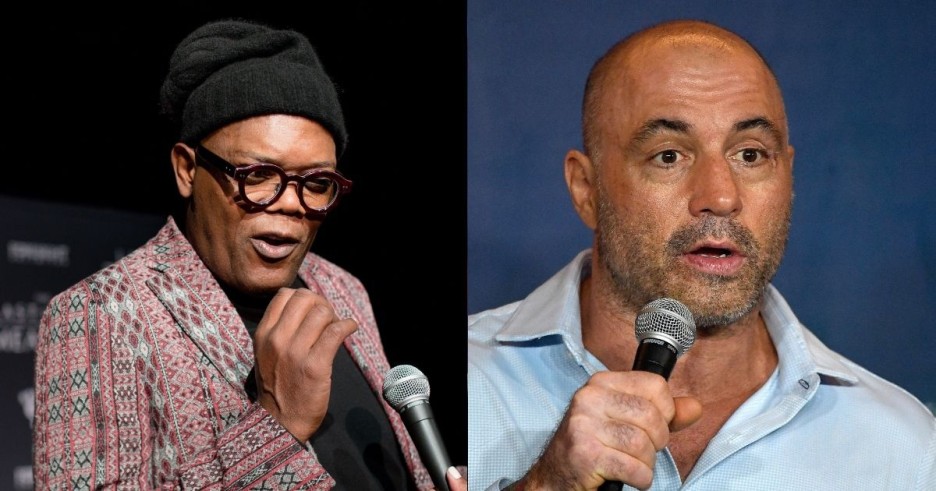Legendary Actor Samuel L. Jackson Takes Joe Rogan To Task On The Context Of Using The N-Word.

Joe Rogan doesn't seem to be making too many allies these days, what with his controversial take on COVID treatment/misinformation and Spotify coming under fire for not fact-checking his content. Or how he posted on Instagram a doctored CNN headline that falsely stated that Steven Seagal is fighting for the Russians (here's hoping he knew it was fake).
But lest we forget his blatant use of the N-word over the years which became a hot button topic in recent weeks when singer India Arie posted clips of him saying it on YouTube. But leave it to legendary actor Samuel L. Jackson to give people a lesson on why context matters on that last subject.
In a recent interview with The Times, Jackson was not shy about how Rogan both used the word and tried to back-peddle.
"He is saying nobody understood the context when he said it, but he shouldn't have said it. It's not the context, dude - it's that he was comfortable doing it. Say you're sorry because you want to keep your money, but you were having fun and you say you did it because it was entertaining."
He continued by saying in media the word is only appropriate when it is "an element of what the story is about. A story is context - but just to elicit a laugh? That's wrong."
This dialogue about the N-word is nothing new for Jackson to speak openly about. For years, he has stated his opinion on the use of the word due to his long relationship with writer/director Quentin Tarantino, who notoriously included the word into much of his work, most notoriously in his Western Django Unchained, where even the film's heavy, played by Leonardo DiCaprio, had trouble uttering the line.
"While we were rehearsing 'Django Unchained,' Leo [DiCaprio] said, 'I don't know if I can say [the N-word] this many times.' Me and Quentin said that you have to. Every time someone wants an example of overuse of the N-word, they go to Quentin - it's unfair. He's just telling the story and the characters do talk like that. When Steve McQueen does it, it's art. He's an artiste. Quentin's just a popcorn filmmaker."
Any way you slice it, the N-word is a blight on the written and spoken word, though Jackson's take on its use does come with some serious merit. The word is infinitely shameful, albeit, a big part of history. It was designed to demoralize, debase, and label people as less than. To be used in the context of expressing a time when its rampant use was commonplace does come with the caveat of making audiences uncomfortable in order to express the terrible impact inflicted on those targeted.
There is a time and context for everything, assuredly, though this is a subject that will always spark emotions, debate, and, if we are lucky, a better understanding of one another through learning a lesson about inequality so we are not doomed to repeat it.
© 2026 Enstarz.com All rights reserved. Do not reproduce without permission.






